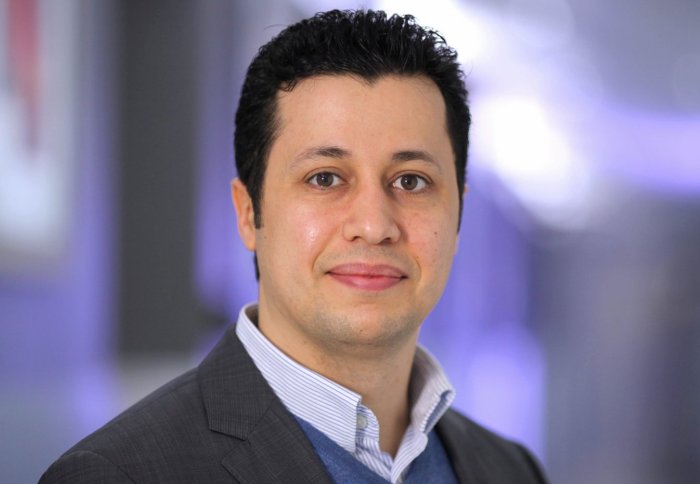Dr Pantelis Georgiou wins IEEE Award
by Emma Rainbow

Pantelis Georgiou has been awarded the 2017 IEEE Sensors Council Technical Achievement Award in the area of Sensor Systems or Networks (early career)
Dr Pantelis Georgiou from the Centre for Bio-Inspired Technology, Circuits and Systems group was given this award for his significant contributions to bioelectronics through the development of the Bio-inspired Artificial Pancreas and innovations in Ion-Sensitive Field Effect Transistors for rapid diagnostics.
Dr Georgiou says about the award ‘We are at the forefront of revolutionising diabetes management and creating novel diagnostic technology which will have great impact on human health. It’s a great honour to receive this award and I’m thrilled my group has been recognised by the IEEE sensors community.’
Dr Georgiou will be presented the award on 1 November 2017 at the IEEE Sensors 2017 Conference in Glasgow.
Dr Georgiou’s team have developed the world’s first bio-inspired artificial pancreas (BiAP) developed for the treatment of diabetes. The BiAP is a closed-loop system that replicates the functionality of the biological pancreas to deliver real-time glucose control. It uses an algorithm which replicates the sub-cellular behaviour of the beta cells of the pancreas to release insulin in a physiological manner and is the first of its kind to be implemented in a miniature low-power silicon microchip and integrated into a small handheld device. With his team, they have successfully validated the bio-inspired artificial pancreas in adult participants with type 1 diabetes acquiring over 1000 hours of clinical data with the system, and proving its safety and efficacy. Clinical trials were conducted at the NIHR/Wellcome Trust Imperial Clinical Research Facility, Hammersmith Hospital. The results to date have proven the safety and efficacy of the BiAP and they are now moving forward to conduct ambulatory trials on type 1 diabetic subjects in their home environment which will commence at the end of 2017.
Read more about the Bio-inspired Artificial Pancreas.
Dr. Georgiou has also been recognised for pioneering several techniques that enable the reliable use of solid-state chemical sensors called Ion-Sensitive Field Effect Transistors (ISFETs), using CMOS micro-technology, in fully integrated sensing systems. This enables development of low-cost, highly scalable and completely integrated Lab-on-Chip systems. His team is currently designing next generation ISFET arrays used in a diagnostic system for rapid detection of infectious diseases. This system will be clinically trialled in developing countries in 2018 for rapid screening of bacterial, viral and fungal infections.
See video about Microchip Technology enabling Rapid Diagnostics for Infectious Disease
Article text (excluding photos or graphics) © Imperial College London.
Photos and graphics subject to third party copyright used with permission or © Imperial College London.
Reporter
Emma Rainbow
Department of Electrical and Electronic Engineering